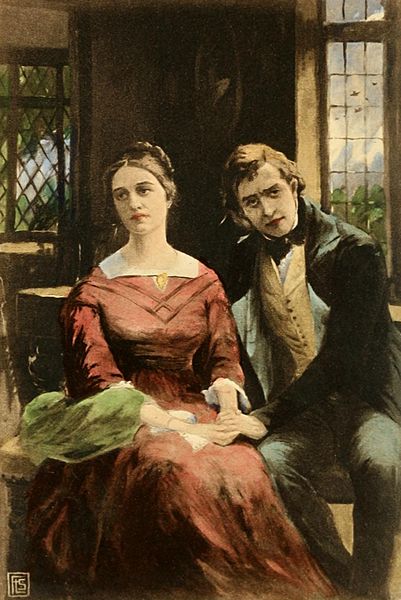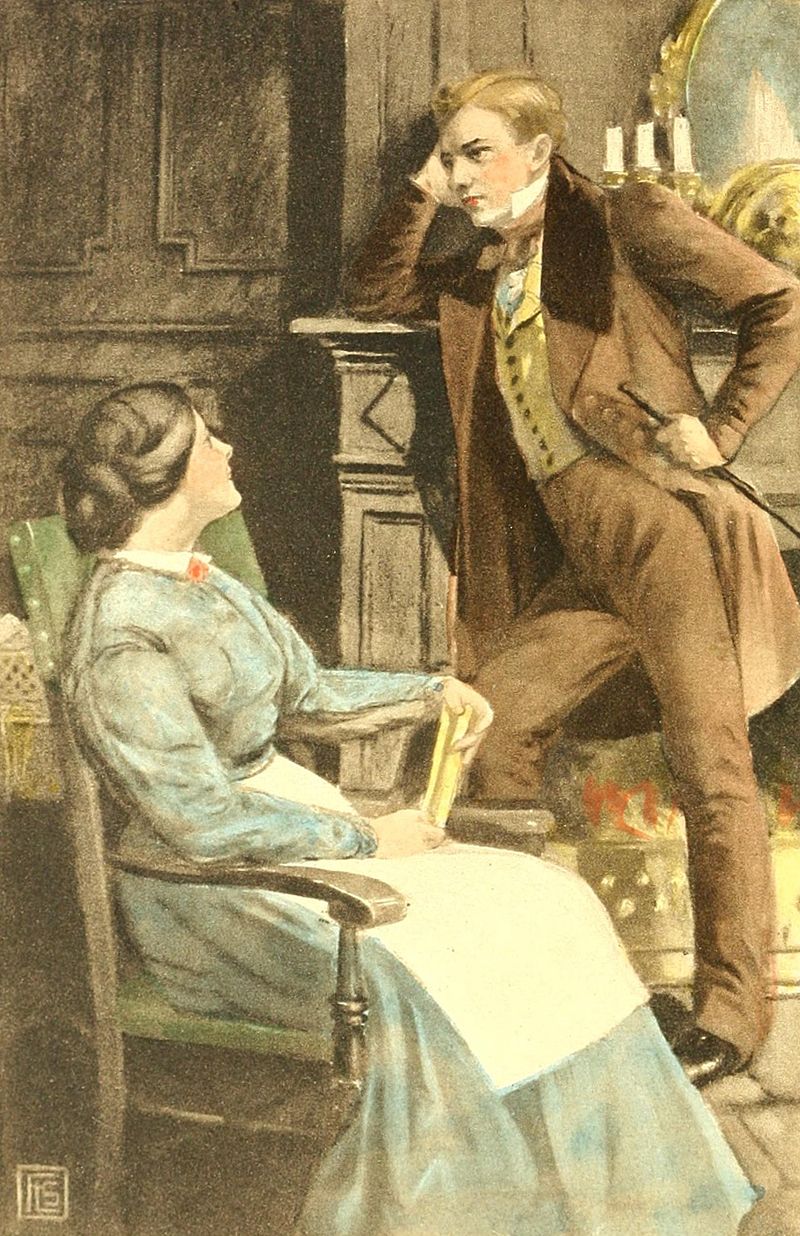 I watched the 1994 BBC production of Middlemarch on DVD. (My library didn't have it, but was able to borrow it from another library through interlibrary loan.) Middlemarch was wonderful, and it captured the spirit of the novel. I did think that the story suffered from being compressed into six hours or so. Although it is clear that Ladislaw and Dorothea love each other by the end of the series, they met so infrequently that I felt I couldn't see that their behavior was sufficiently motivated. I recall that when I read the novel I felt that Ladislaw and Dorothea had some sophomoric conversations. That's absent here. I'm not sure that it matters: that sense of wistfulness and compromise about the end of Lydgate and Dorothea's stories has been preserved.
I watched the 1994 BBC production of Middlemarch on DVD. (My library didn't have it, but was able to borrow it from another library through interlibrary loan.) Middlemarch was wonderful, and it captured the spirit of the novel. I did think that the story suffered from being compressed into six hours or so. Although it is clear that Ladislaw and Dorothea love each other by the end of the series, they met so infrequently that I felt I couldn't see that their behavior was sufficiently motivated. I recall that when I read the novel I felt that Ladislaw and Dorothea had some sophomoric conversations. That's absent here. I'm not sure that it matters: that sense of wistfulness and compromise about the end of Lydgate and Dorothea's stories has been preserved. |
| Dorothea and Ladislaw, from a 1910 edition of the novel by Jenkins Publishing |
On the other hand, the performances of Casaubon (Patrick Malahide) and Rosamund Vincy (Trevyn McDowell) were so fine that I felt that they really enhanced my understanding of the issues in the novel. Perhaps the actors were kinder to these characters than George Eliot was - I'm not sure, because it's been years since I read the novel. Almost certainly I have changed since I read the novel.
There's only one "special feature" on the DVD. It's a "Reader's Guide to Middlemarch," and I loved it. David Lodge, Howard Jacobson, A.S. Byatt and Clare Tomalin, Kate Flint, screenwriter Andrew Davies, as well as some members of the George Eliot Fellowship, talk about the novel in a very thoughtful way. The ladies and gentleman of the George Eliot Fellowship have some things to say which I think student readers will find helpful: Eliot's portrait is realistic, not romantic, and reflects our real lives (and gives us an opportunity to recognize ourselves); Eliot's realism includes writing about the real jobs that people have; Eliot not only offers realistic portraits but tremendous psychological insight into why people behave the way that they do.
 |
| Mary Garth and Fred Vincy, from the same edition Rosamund and Tertius Lydgate, from the same edition |
I think that the "Reader's Guide" provides excellent answers to the question, "Why is Middlemarch important?" and I think students will find its discussion enlightening and helpful.

No comments:
Post a Comment